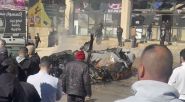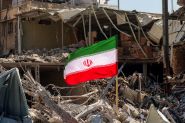
Israel Strikes Palestinian Camp and Southern Beirut Suburbs
This is Beirut 05/03 10:15

This is Beirut 05/03 10:15

This is Beirut 04/03 22:35

Amal Chmouny 04/03 22:10

This is Beirut 04/03 17:35

Bassam Abou Zeid 04/03 16:25

This is Beirut 05/03 13:25

This is Beirut 05/03 11:20

This is Beirut 05/03 11:05

This is Beirut 05/03 09:30

This is Beirut 05/03 00:00
This is Beirut 04/03 10:40
Claudia Groeling 06/02 23:25
This is Beirut 03/02 19:45
This is Beirut 03/02 09:00

This is Beirut 13/02 13:30

This is Beirut 2025-12-21 15:05

This is Beirut 2025-12-21 12:05

Eleonore Stephan for Huna Lubnan 2025-12-21 09:05

This is Beirut 2025-12-20 18:05

This is Beirut 12/01 18:15

This is Beirut 09/01 20:40

This is Beirut 08/01 17:30

This is Beirut 07/01 20:45

This is Beirut 06/01 17:00

Makram Haddad 2025-12-19 08:40

Makram Haddad 2025-12-18 08:50

Makram Haddad 2025-12-17 11:30

Makram Haddad 2025-12-16 09:30

Makram Haddad 2025-12-12 11:10

Bélinda Ibrahim 2025-12-17 11:00

Makram Haddad 2025-12-17 08:50

Bélinda Ibrahim 2025-12-11 10:30

Bélinda Ibrahim 2025-12-10 12:00

Bélinda Ibrahim 2025-12-04 15:05